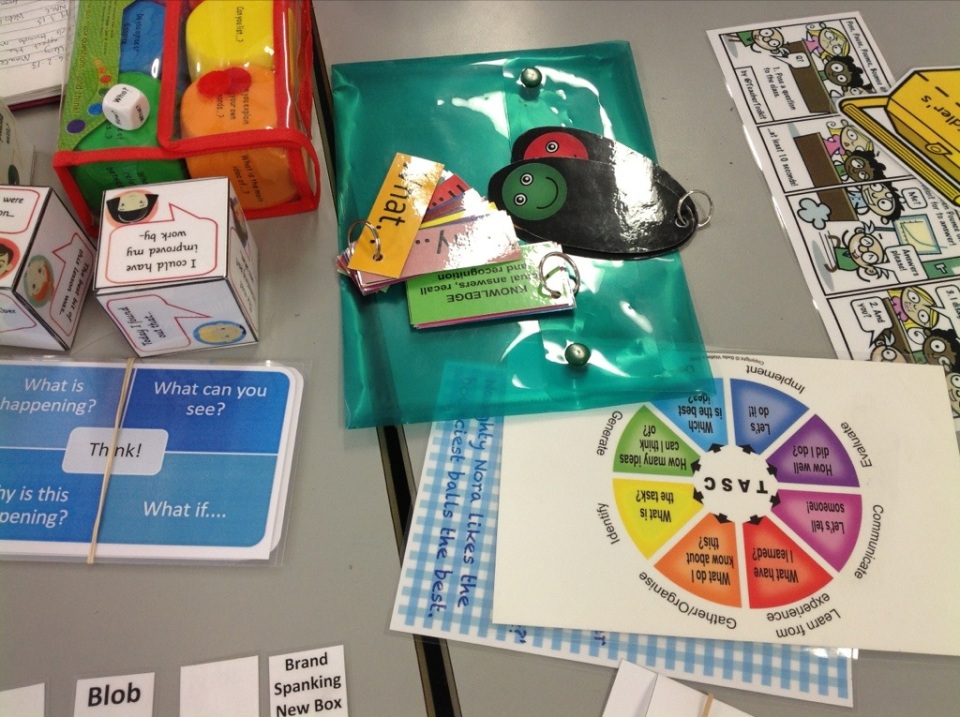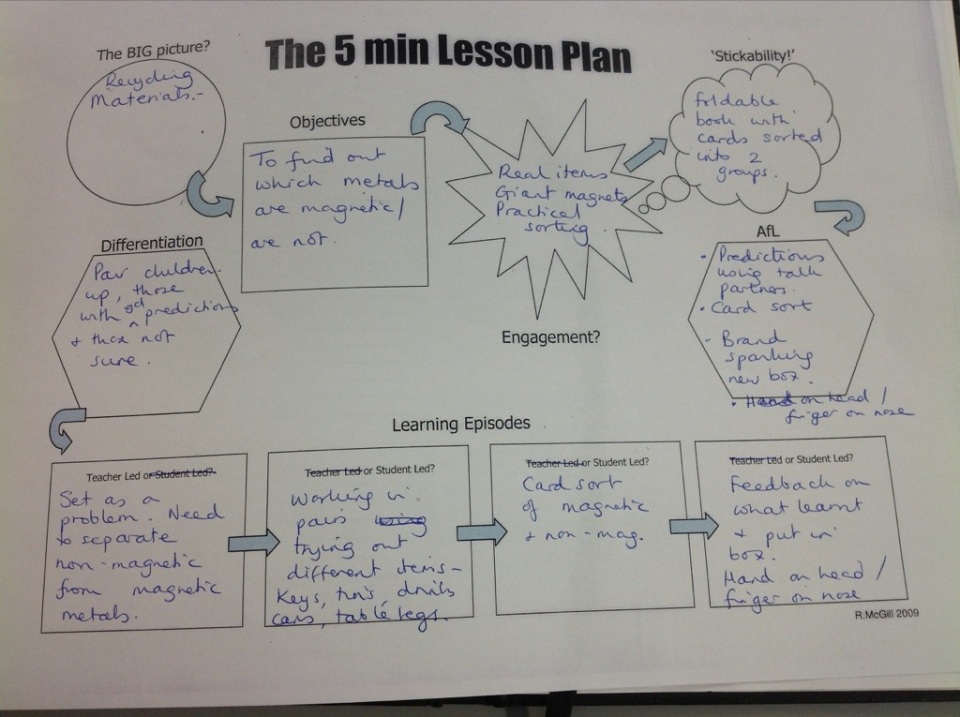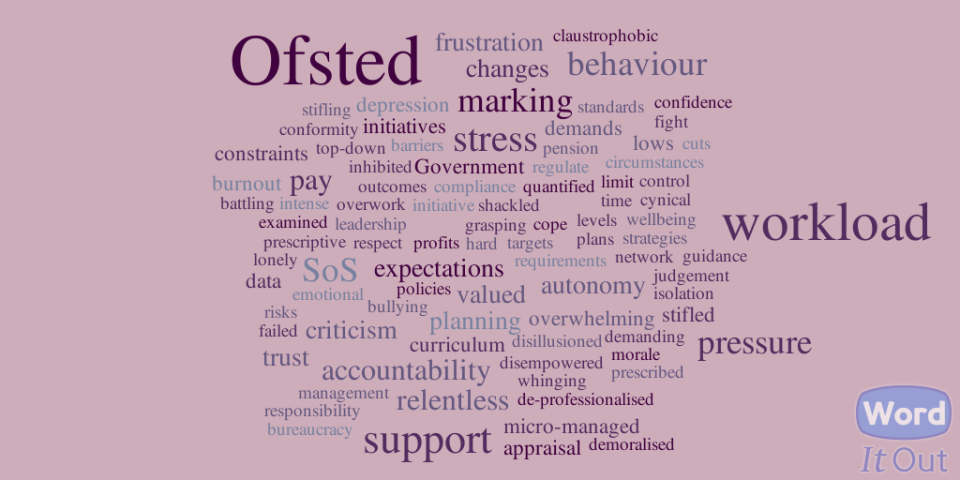In October, I attended a course at the National Science Centre (thoroughly recommended, btw, fantastic environment to be in) where the science lead for Ofsted presented the details of the report released this month.
For those not lucky enough to hear Brian speak (he’s fantastic) I took pretty comprehensive notes. Having read some tweets earlier today, I’ve decided to publish them as they seem to embody the report, and clearly reflect that which Brian feels most important.
Brian Cartwright – HMI science head
Talking about a new report on primary science to be released soon.
About a quarter of primary science is in need of improvement. Best teaching is in eyfs and sixth form, weakest is in average ability ks3. Learning in sixth form is better but what goes on in private study does not consolidate this so overall learning is not so good. Half of primary schools that Ofsted visited do not have science targets and most subject leaders have not had subject specific leadership training.
Science subject specialism is not a requirement of good science teaching, you do need to know the big ideas, see Wynne Harlen, but you don’t need to know the minutae.
Good science teaching –
Subject leadership that puts enquiry at the heart of science coupled with knowledge of how pupils learn
Inspirational teaching to sustain curiosity so they are eager to learn and investigate
Assessment of how they are learning and using this to plan the next step
Needs improvement –
Does not match prior learning, pupils should be picking up from different places in different lessons
Pupils become disengaged through lack of challenge or repetition of experience, move away from a model of differentiation where they all do the same thing, then some get extended if they finish, make sure they have the same level of differentiation as they do in English and maths and the same level of feedback!
Teachers fail to provide enough feedback
Targets are not being set and progress is not tracked by SLT as it is not seen as a priority for many
Key findings –
Best teachers make sure children master investigative practical skills, gain necessary understanding.
Achievement is highest when pupils are involved in planning, carrying out and evaluating investigations that they have in some part suggested.
Don’t get hung up on variables, let them find out for themselves that it isn’t fair. Outstanding school science leaders understand the importance of the scientific method as an essential contributor to human knowledge and understanding
Need to ensure effective tracking of progress and ensure coverage of the curriculum
Teachers need subject specific leadership training
School science is more likely to be outstanding when teachers have had subject specific training
Need better differentiation
In primary, timetables are not taking enough time to teach it, it needs to be more incorporated with other subjects and regular, build it into topics
Recommendations –
Science teachers should:
Ensure individual pupils are taught well across the ability range
Plan lessons that building prior knowledge
Consider longer writing activities so writing is literacy
Allow enough time to secure understanding of science concepts
Plan homework that encourages pupils to research and think about topics in depth and apply their understanding of an idea
Give children a chance to talk as well as write about their ideas
Make sure they finish what they start, results do matter, insist upon accurate measurement, careful observation and clear recording
Monitor progress and plan effective follow up – next steps
We need:
Better assessment, where now and what next. APP Profiling is good as ofsted can see them moving up through understanding
Give science a high profile – PSQM is seen as a good example of this
Full and rigorous coverage of content
Staff thoroughly confident in teaching pupils how to work scientifically, make sure the aim is science, they need to some some investigating, finding out and recording
Strong links between literacy and science, this is the best way of giving more time to science, using scrapbooks can be useful for this as it is a literacy lesson
Regular monitoring of achievement and groups if appropriate
What limits good science teaching:
Lack of monitoring
Topics that don’t cover all the curriculum
Reduced teaching time squeezing it out, it should be part of literacy and numeracy
Practical work limited to following recipes for investigations
! Lack of subject knowledge is not a barrier to good teaching, over emphasis of a fair test mantra. The only way for it to embed is for them to find out their results are not reliable. Pupils need time to think for themselves, investigate and evaluate. If they come up with a potty idea, let them find out that it’s potty or not viable. Don’t give them the plan, let them work out their own or they will never understand the scientific method.
Spiritual moral and cultural ensures all pupils experience the full wonder of the universe and develop a responsible attitude to environmental protection. The schools curriculum promotes and sustains a thirst for knowledge and a love of learning. If they love doing something, continue with it. Move on when they are ready.
Outstanding science leadership –
High level of science expertise and vision and improves the performance and practice of others
Make sure the underpinning principle of the lesson is clear
Track progress with feedback used
Science should embrace whole school policy’s for English and maths
Identify what is good and needs improving
Involve with colleagues in other schools or LA advisors
Subject review, self evaluation are informed by current best practice in science education
Should inspire confidence and wholehearted commitment from pupils and colleagues, delegate some subject duties where appropriate to allow time for quality professional development in the subject
CPD is well targeted and evaluated for impact on maintaining pupils curiosity
Maintaining curiosity:
Factors that promote achievement in science
Brian Cartwright HMI
ofsted national lead, science
October 2013







